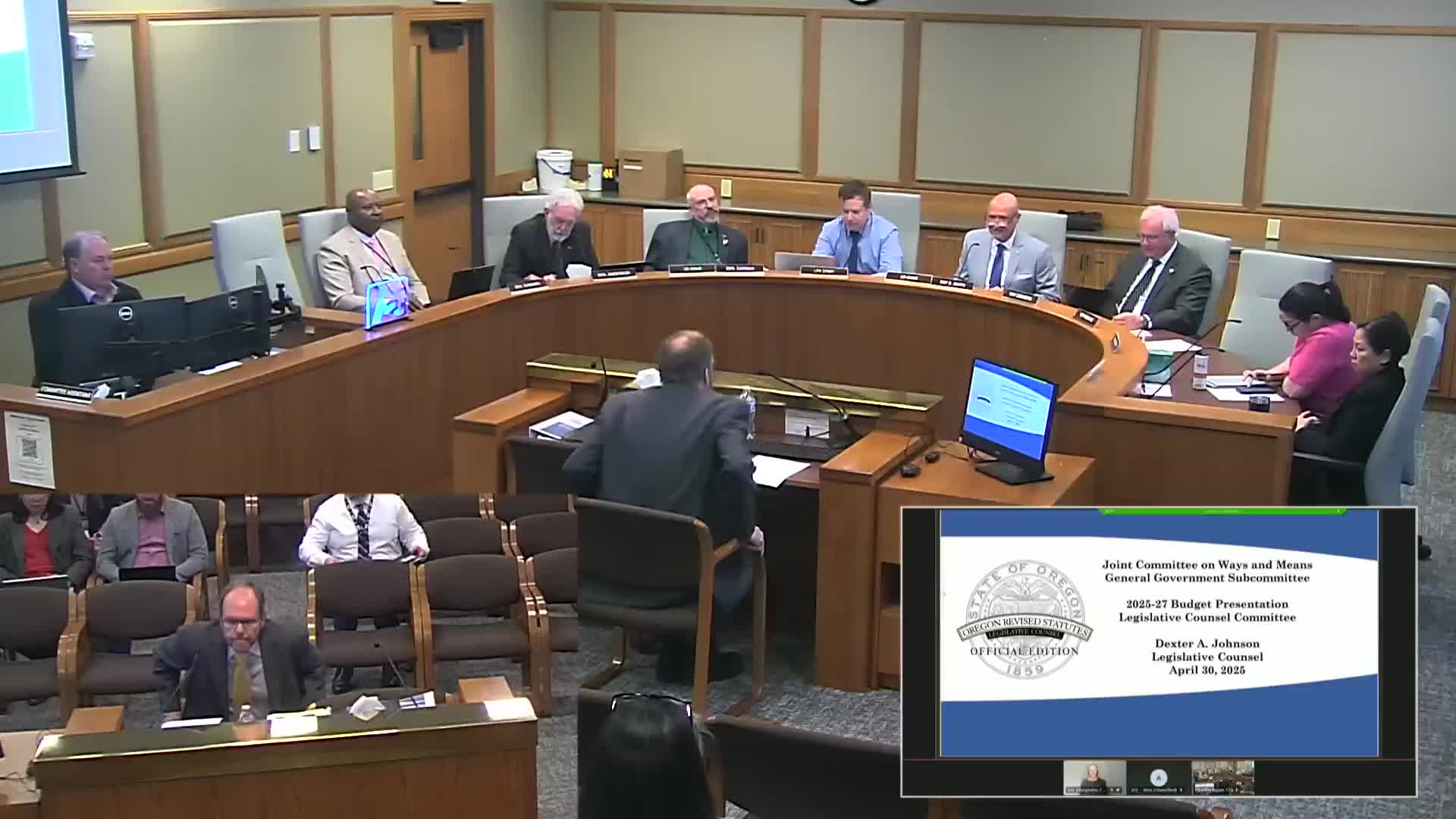Legislative Counsel warns rapid growth of placeholder bills is compressing drafting schedule
Get AI-powered insights, summaries, and transcripts
Subscribe
Summary
Legislative Counsel reported a rise in initiative and placeholder bill requests that compresses time for substantive drafting and urged earlier stakeholder engagement; the office also described rule-review responsibilities and staffing levels.
Dexter Johnson, Legislative Counsel, told the General Government subcommittee on April 30 that his office drafts bills and amendments and handles rule review, publications and legal advice for the Legislative Assembly. "We are the law firm for the Legislative Assembly," Johnson said, summarizing the office's core mission.
Johnson said Legislative Counsel prepared roughly 5,200 drafts in the 2025 cycle to date and that the office processes many thousands of amendments during a two-year legislative cycle. He flagged a trend that he called operationally significant: the growth of placeholder or "study" bills. Johnson said placeholder bill requests have risen from under 100 in 2015 to almost 900 requested in 2025, with more than 600 actually introduced as placeholders. He warned that increased placeholders compress the time available to produce substantive drafts and to work with members and stakeholders before first-chamber deadlines.
Johnson described other office duties: confidential bill drafting for members and state agency bill requests before session, and a high‑level review of about 1,000 administrative rules annually (approximately 50 of which are flagged as problematic and addressed via informal or formal follow-up). He told members that when duplicate drafting requests appear, Legislative Counsel may ask both requesters for permission to disclose duplication but that keeping drafts confidential sometimes means preparing two duplicate drafts rather than sharing that information.
Johnson said Legislative Counsel is mainly General Fund–supported and publishes statutory compilations such as the Oregon Revised Statutes and session law volumes from publication sales. He reported no substantive staffing expansions in the current policy option package but noted workflow pressures and asked to return the following day to continue discussion of workflow issues and DPMS (digital publishing/management system) questions.
Committee members raised the placeholder trend as a topic for caucus or leadership discussion and asked about possible process changes to ease compressed timelines. Johnson recommended earlier stakeholder work and noted the office's confidentiality constraints when preparing drafts.
